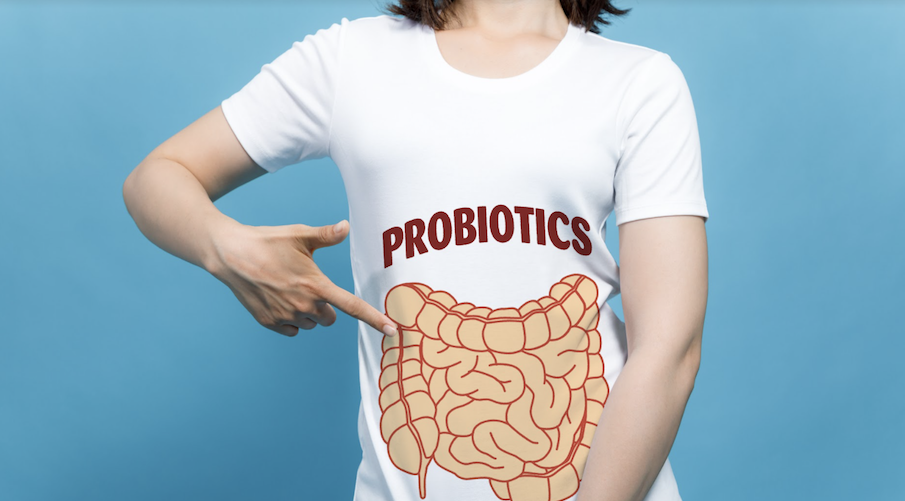Your gut is home to billions of bacteria, collectively known as gut microbiota.
These bacteria are found mostly in the digestive tract and are crucial for your health.
Your gut health is said to be good when the microorganisms in your gut are well balanced.
Maintaining a good balance of microorganisms in your gut is the key to good physical and mental well being.
Good gut health doesn’t only improve your immunity, but it also plays a vital role in improving your metabolism, mental clarity, and overall health.
In this article, we’ll discuss the top five practices that may help improve your gut health.
5 Most Common Practices That May Help Your Gut Health:

1. Intermittent Fasting.
Experts suggest that the best way to maintain ideal gut health is to increase good bacteria over the bad in your gut.
Though improving gut health is commonly understood as eating gut friendly food, another thing that can help improve your gut health is by focusing on when you eat along with what you eat.
You may do this by fasting for a certain number of hours a day and have a restricted eating window.
This method of fasting is known as intermittent fasting. To learn more about intermittent fasting and its benefits, click here.
Intermittent fasting is said to be an effective way to change the makeup of your microbiome.
This is because gut bacteria are extremely responsive to the presence and lack of food in your system.
During the absence of food, there’s an expansion of a particular bacteria that is associated with several health benefits like decreased inflammation and better metabolism.
While there are several fasting patterns to choose from, keep in mind that for the fast to be effective at a microbiome level, you may have to fast for long hours. Ideally, reducing 70 to 75% of your caloric intake on your fasting days can give you optimal results.
However, you may also just reduce your calorie intake by 60% to see results.
2. Eat Fermented Foods.
Fermented foods are said to be natural sources of probiotics. During the process of fermenting, the bacteria convert food sugars to organic acids.
Fermented foods like yogurt, kimchi, and kombucha are rich in bacteria called lactobacilli, which are associated with several health benefits.
Having fermented foods may not only help reduce inflammation and improve your digestive health, but it also helps reduce the disease causing bacteria in your gut and improve your health.
One of the easiest ways to boost your gut health is to include plain yogurt in your diet.
Daily intake of plain yogurt is said to enhance the functioning of the microbiota and reduce disease causing bacteria in your intestines.
3. Eat Prebiotic Foods.
Prebiotic foods are known to increase the beneficial bacteria in the gut. Prebiotics are complex carbohydrates and fibers that can’t be broken down by human cells and require probiotics to break them down and use them as an energy source.
As probiotics feed on indigestible carbohydrates or prebiotics, the process encourages the growth of beneficial bacteria in the gut.
Since prebiotics are said to improve the growth of healthy bacteria in the gut, they’re also said to reduce insulin, triglycerides, and cholesterol levels in obese people.
Whole grains, garlic, onions, bananas, and chicory are some of the foods rich in prebiotics and can be included in your diet to improve your gut health.
4. Reduce Stress.
Stress can not only disrupt your mental well being but harm your gut health as well.
Experts suggest that stress can disrupt the microorganisms in your gut, even when the elevated stress levels are short lived.
However, psychological stress is not the only stress that can harm your gut health.
Environmental stressors like extreme weather conditions, sleep deprivation, or the disruption of your body’s circadian rhythm can all disrupt your gut health.
By including stress management techniques like meditation, exercising, and relaxation in your daily routine, you can reduce your stress levels and benefit your gut health.
5. Avoid Artificial Sweeteners.
Though most people on a diet often switch to artificial sweeteners to reduce their sugar intake, artificial sweeteners can actually harm your gut microbiota. Since the use of artificial sweeteners leads to changes in the microbiota, it can increase blood sugar levels and lead to impaired insulin response.
What Do You Need to Remember?
Gut health is key to overall health and vitality.
Since good gut health depends on the balance of good bacteria in your gut, you can improve your gut health by focusing on what to eat and when you eat it.
To keep your gut bacteria flourishing, make sure to include fermented foods, prebiotics, and a lot of vegetables, legumes, and fruit in your diet.
While eating the right foods is essential, another important component to good gut health is knowing when to eat.
It’s important to give your intestines some rest time to help the good bacteria flourish. You may do this by following an intermittent fasting pattern.
Regular exercise, proper sleep, and keeping your stress levels low will also help you improve your gut health.






